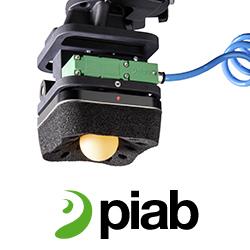The Florida Hospital Nicholson Center and Adventist University of Health Sciences are partnering with the STAN Institute in Nancy, France to launch the Basic Robotic Surgical Course. The multi-disciplinary, five-day course was designed to incorporate the safe acquisition of robotic surgical skills through the use of simulation & comprehensive robotic platform training.
Education in Robotic Surgery
Todd Larson | Florida Hospital Nicholson Center
What is the purpose of this course, and what does the experience include?
The purpose of this course is to develop competency in the skills required to safely perform robotic surgery using the Intuitive Surgical da Vinci Surgical Robot. The course utilizes a blended training approach that focuses on:
-
Defining the robotic surgical platform components, features, setup requirements, and troubleshooting measures.
-
Developing the psychomotor skills required to safely operate the robotic surgical platform.
-
Leveraging surgical case observation in defining how the robotic surgical platform is integrated into the operating room setting and how the platform can be best utilized in clinical practice.
-
Developing clinical efficiency through comprehensive team training.
This 5-day course experience will include:
-
Exposure to lectures and case studies
-
Hands-on simulation experience
-
Wet & dry lab experience
-
Surgical case observations
-
Competency development
-
Team Training
-
Comprehensive performance evaluation
This course is available to surgeons, residents, fellows, nurses, and surgical technologists that are interested in safely transitioning learning into practice and developing competency in robotic surgical skills.
What role does each institution play in the course?
This accredited course was originally developed at the School of Surgery at the University of Loraine in Nancy, France (now the STAN Institute). The course was designed to incorporate the safe acquisition of robotic surgical skills through the use of simulation & comprehensive robotic platform training. The team in France felt that any successful training program required the healthcare provider to achieve competency in the safe operation of the robotic platform and developed educational benchmarks that are the foundation of the course.
Through the STAN Institute partnership with the Florida Hospital Nicholson Center, the course has been enhanced with the inclusion of comprehensive evaluation tools and focused educational standards. This includes leveraging digital technology in facilitating and marketing the course. These efforts are being coordinated jointly with the French and Florida Teams to deliver a high-quality training program.
What will the course consist of? Can you run through the format and schedule?
Each individual course participant receives their individual training schedule when they arrive on the 1st day of the course. The schedule is provided on an iPad with other digital course materials and examinations. The individualized schedule also allows the course faculty to adjust the schedule based on the performance of the individual participant’s performance. The below represents a sample schedule.
|
Daily Agenda |
|||||
|
Time |
Day 1 |
Day 2 |
Day 3 |
Day 4 |
Day 5 |
|
8:00 |
Welcome/Course Overview/Testing |
OR Observation |
Simulation Lab |
Robotic Platform Preparation OR |
Robotic Lab |
|
9:00 |
Simulation lab |
OR Observation |
Simulation Lab (dVSS) |
Robotic Platform Preparation OR |
Robotic Lab |
|
10:00 |
Simulation lab |
OR Observation |
Simulation Lab |
Robotic Platform Preparation OR |
Robotic Lab |
|
11:00 |
Microsurgery Lab |
OR Observation |
Team Training Simulation Lab |
FRS Dry Dome Lab |
Robotic Lab |
|
12:00 |
Lunch Break |
Lunch Break |
Lunch Break |
Lunch Break |
Lunch Break |
|
13:00 |
Simulation Lab |
Microsurgery Lab |
Robotic System Docking |
Simulation Lab |
Simulation Lab |
|
14:00 |
Microsurgery Lab |
Simulation Lab |
Robotic System Dry Lab |
Simulation Lab |
Simulation Lab |
|
15:00 |
Laparoscopic Training Lab |
Team Training Simulation Lab |
Robotic System Dry Lab |
Simulation Lab |
Simulation Lab |
|
16:00 |
Simulation Lab |
Microsurgery Lab |
Robotic System Dry Lab |
Microsurgery Lab |
Robotic Suturing Lab |
|
17:00 |
Team Training Simulation Lab |
Simulation Lab |
Robotic System Dry Lab |
Simulation Lab |
Performance Testing |
|
18:00 |
Robotic Surgery, Lecture/Case Study |
Human Factors Lecture |
Fundamentals of Robotic Surgery Lecture |
Non-Technical Skills Overview |
Closing Evaluations & Documentation |
What are the expected outcomes of the course?
The expected outcomes for this course include:
-
The learner will identify the specific robotic platform components, settings, and features required to safely utilize and operate the robotic surgical platform.
-
The learner will be able to demonstrate the proper robotic platform pre-operative setup, troubleshooting measures, and emergency procedures required to safely operate the robotic surgical platform.
-
The learner will be able to demonstrate proficiency in the following core robotic psychomotor skills; Endowrist Manipulation, Camera Navigation, Instrument Clutching, 4th Arm Application, Energy Application, Needle Driving, Surgical Knot Tying, and Suturing.
-
The learner will be able effectively translate fine motor movements into basic core robotic psychomotor tasks by achieving competency in microsurgery end-to-end anastamosis.
-
The learner will be able to demonstrate competency in the basic skills required for the surgical 1st assistant to include; Camera Navigation, Instrument Insertion, Item Hand-Off’s & Transfers, Cutting, Retraction, Suctioning, Irrigating, Energy Application, and Hemoclip Application.
-
The learner will be able to recognize and articulate the roles and responsibilities of each robotic surgical team member and will competently perform the proper setup of the robotic surgical platform for a surgical procedure.
Can you describe the issue of the lack of standardized robotic surgery training? How does the course address this?
The demand for robotic assisted surgical methods has increased greatly over the last 10+ years. Despite this rapid growth, the following issues still remain:
-
There are no universal credentialing requirements or clear training recommendations surrounding robotic surgical technology.
-
Institutions are left to determine on their own how best to train their surgeons and keep them proficient to address patient safety issues while minimizing the cost burden and establishing credentialing standards that cover each surgical specialty.
-
Effectively bridging the gap between safe acquisition of robotic surgical skills and effective and safe performance during live robotic assisted surgery.
-
Developing comprehensive training for new robotic surgical platforms entering the market while promoting patient safety.
The Basic Robotic Surgical Course was developed with the above points in mind. The curriculum is structured in such a way that it has established standards, provides for safe acquisition of skills, and can be adapted to future robotic surgical platforms.
Should we expect more international partnerships geared toward patient safety in the future?
Patient safety is a priority for all healthcare providers worldwide. Anytime we can collaborate to develop training that promotes patient safety, we will certainly take advantage of that opportunity.
To what extent is robotic surgery being used today and how do you see it expanding in the future?
Robotic surgery is expanding greatly and will continue to expand as medicine continues to innovate in the area of information systems. Currently, we have robots that can be utilized to perform surgery in a variety of surgical specialties. There are robotic surgical platforms that can assist with hair transplantation, head and neck surgery, joint replacement surgery, and spinal surgery.
How can people register for upcoming courses at the Florida Hospital Nicholson Center?
The Nicholson Center website offers a calendar of upcoming events at our facility.
 About Todd Larson
About Todd Larson
Todd Larson is the director of education and training at the Florida Hospital Nicholson Center, where he Designs, coordinates, delivers and evaluates education and training programs conducted at the facility for learners in healthcare. Previously vice president & chief clinical officer at Mimic Technologies, Inc. and a registered nurse, Larson has experience in OR management, IT Project Management, Telesurgery, Acquisition & Budget Management, Education & Training, Robotic Surgery, operating room IT/Video Integration, simulation and telesurgery research.
The content & opinions in this article are the author’s and do not necessarily represent the views of RoboticsTomorrow
Comments (0)
This post does not have any comments. Be the first to leave a comment below.
Featured Product

